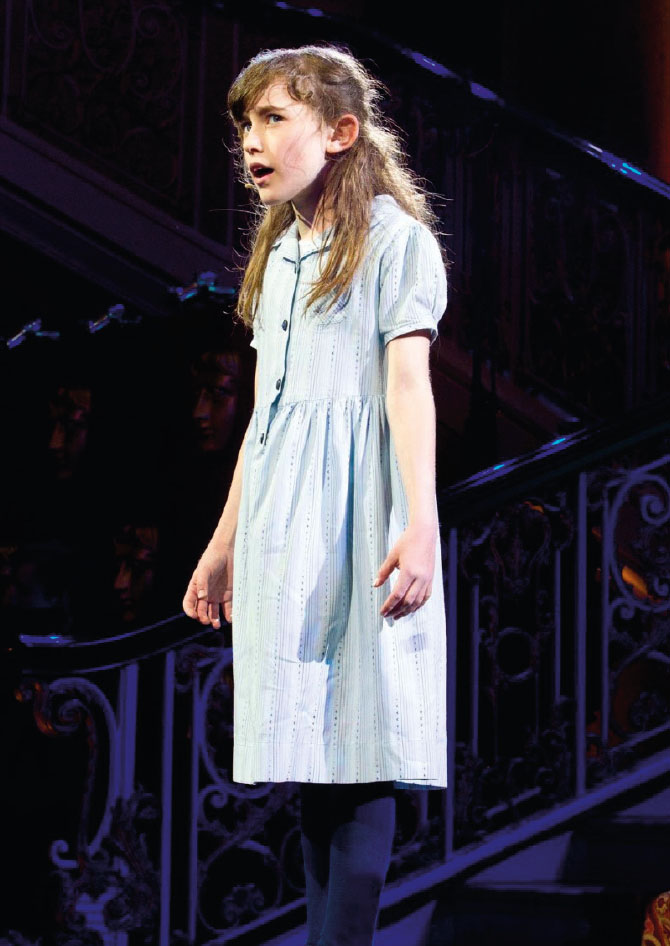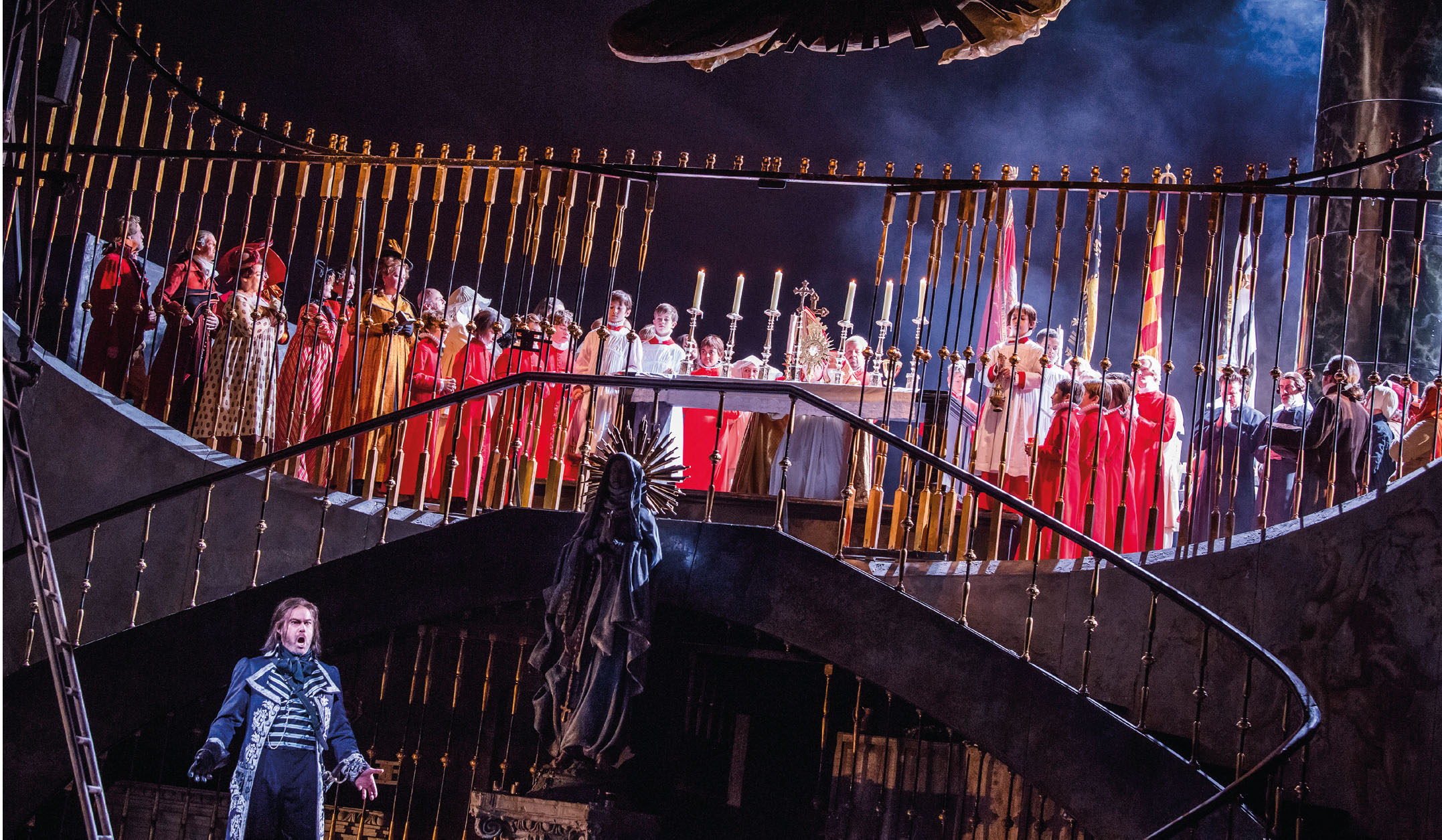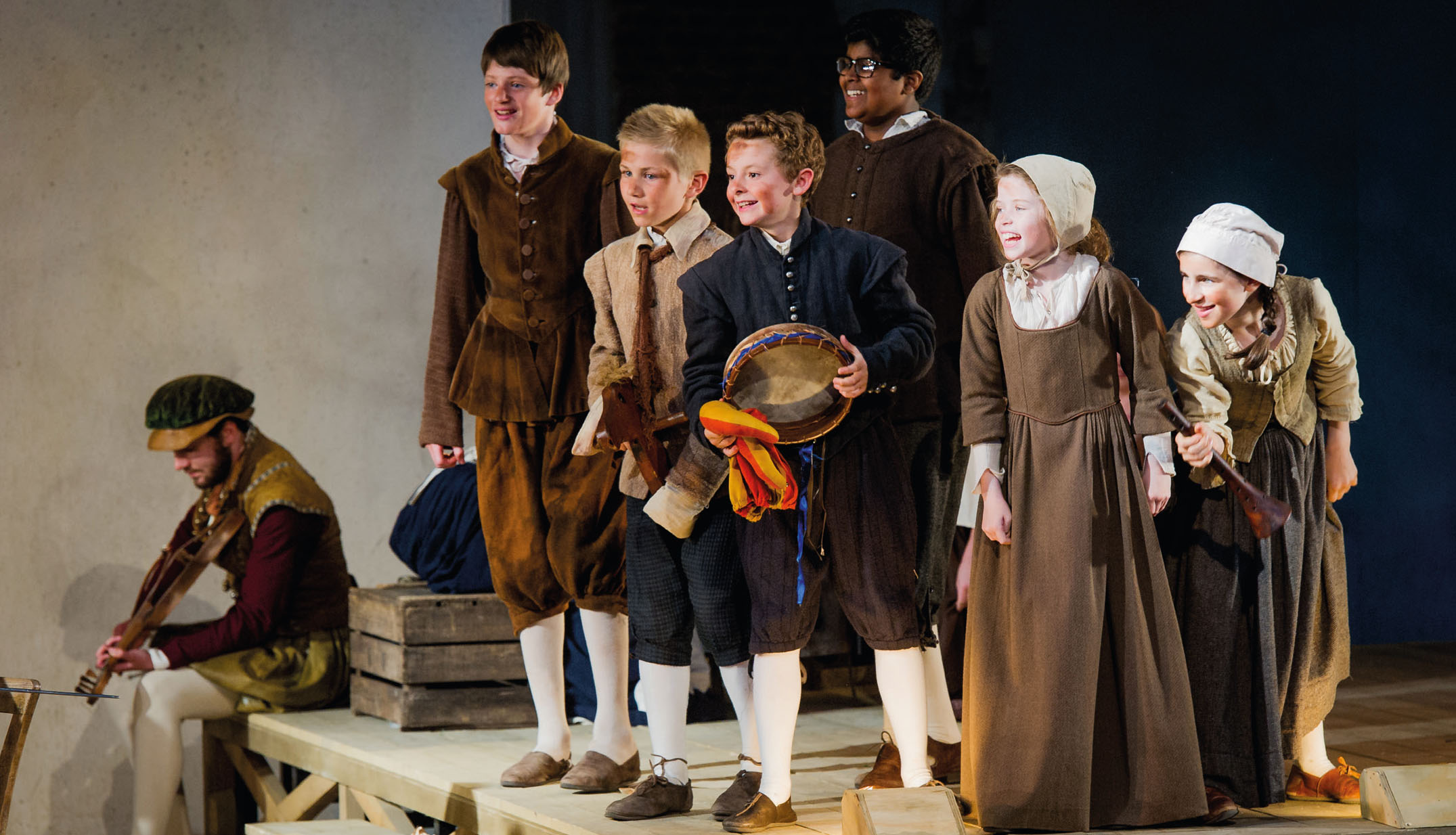
Even for adults, life on the stage can be gruelling. Long stints of learning lines, blocking and rehearsals are the precursor to the performances themselves, which require a significant amount of emotional involvement and physicality. Many adult performers have been unable to perform to such intensities, and while there are safeguarding laws in place for child performers, the expectations – particularly in world-renowned venues such as the Royal Opera House, or in London's West End – are no less forgiving.
Matilda
The Royal Shakespeare Company's (RSC) adaptation of Roald Dahl's Matilda transferred to the Cambridge Theatre in 2011, where it has been performed ever since. It has won an Olivier Award, a Tony Award, and countless others, and has not only transferred to Broadway, but toured the world. Anna-Louise Knight was still in primary school when she played the titular role, with her first show in 2015. With four years of hype and expectation behind the show, I was curious to find out how she coped with the pressures alongside her schoolwork.
‘There were four of us sharing the role and I would have to be in the theatre three days a week, so for the other four days I was able to get on with my normal life – although there was always the chance I could be called into the theatre at short notice,’ she says. ‘On a typical two-show day with a matinee, I would usually leave school just before lunch and get to the theatre for about 12.45pm. We would then have a warm-up and get into costume. Sometimes we would have to come into the theatre early for extra rehearsals too.’

Knight on stage
For such a young person it seems like a lot of work, with plenty of long hours to contend with, particularly with school the following morning; Knight says that she was ‘very tired’ in these instances. ‘The warm-ups were very physical and the expectations of the children from the RSC are very high. I would rest as much as I could on days off.’
Theatre is, of course, an unpredictable medium; things are prone to going wrong, even if the audience is unaware of slip-ups. Knight says that she was occasionally called in ‘at very short notice to perform’ if one of the other girls playing Matilda was ill, and the performance was sometimes stopped if there was a technical issue or a cast member was taken ill.
As for learning and preparing for a show, who managed and took care of the younger performers – the musical director or someone else? ‘There was a children's musical director and a voice coach who worked with us,’ Knight says. ‘We would also work with the company choreographer and resident director. They would give us notes after every performance to ensure we could maintain and improve our standards of performance. When we were not on stage we were looked after by the chaperones.’
After her year as one of the four Matildas, Knight says she found it ‘pretty easy’ to get back into a normal routine: ‘I had my SATs straight after leaving the show and was then able to enjoy my last term at primary school.’ It seems incredible to be able to just hop back into normality after the experience of performing on the West End – and Knight asserts that Matilda was such a dream for her that she auditioned every six months for two years before securing the role. Not only that, but she performed at the Olivier Awards and West End Live, and for world leaders and royalty such as the president of China and the Duke and Duchess of Cambridge.
 Royal Opera's production of Tosca from earlier this year © TRISTRAM KENTON
Royal Opera's production of Tosca from earlier this year © TRISTRAM KENTON Opera Holland Park's 2016 production of La bohème © ROBERT WORKMAN
Opera Holland Park's 2016 production of La bohème © ROBERT WORKMAN
A school-night at the opera
While operas are not structured in the same way as West End musicals, they still require young performers – which in turn may require missing school. Cardinal Vaughan Memorial School in Holland Park is a comprehensive academic school that is renowned for its musical connections and performance quality, and many pupils study music at Oxford and Cambridge afterwards. As such, the school has provided boys for the chorus work at the Royal Opera House for over 20 years, and also for English National Opera and Opera Holland Park.
Scott Price, director of music at the school, believes that there are great cultural and educational values to be had among the pupils who perform, and says that he has never known a pupil's education to suffer as a result of their musical commitments. While they may miss school – ‘more often when they have important solo roles such as Miles in Turn of the Screw’ – Price says: ‘The opposite is true, in fact: they work harder and are more motivated to do well following the experience of working in the professional environment that they are part of in Covent Garden or the Coliseum.’
While a typical day for those participating varies greatly, depending on whether or not the opera is a new production or a revival, for example, Price says that the pupils generally head out to the opera house mid-morning and are back by the middle of the afternoon. ‘This might happen a few days a week,’ he says. ‘When the shows are being performed, the boys are generally with me after school where they complete homework before we head off to the Opera House to perform.
‘Finishing times vary from opera to opera,’ he adds. ‘On something like Tosca the boys are finished by 8.30pm. With Turandot they do not get dropped off back at school until about 10.45pm. Sometimes they will be allowed to come in a bit later the following day.’
The main issue for those pupils who perform, says Price, is that of their vocal health. ‘The key is to avoid too much chest-voice being used, focusing instead on clarity of the text and lots of consonants. That way the sound will carry without the need to resort to chesty, unhealthy singing in higher registers.’
In fact, Price does not believe there to be any negativity attached to the pupils’ involvement in extra-curricular activities: ‘Being in the opera has only ever been a positive experience, and I don't think in chorus work we have this kind of pressure,’ he says. ‘The opera work is very much just another thing that the boys in the choir do – and they do it together as a unit.’
It may seem obvious, but the pressures and constraints that come with being a young performer may seem much easier to cope with, provided the right level of support is given.








